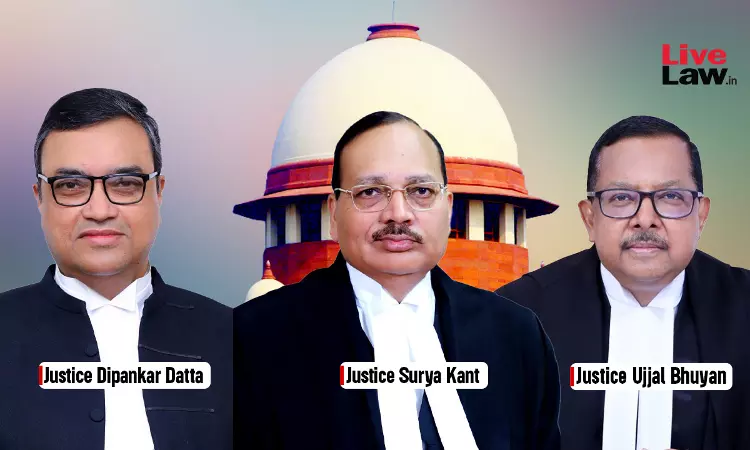Subsequent Change In Law Can't Be A Ground For Condonation Of Delay Or Review: Supreme Court
Debby Jain
5 Jun 2024 11:00 AM IST

Next Story
5 Jun 2024 11:00 AM IST
In a batch of land acquisition cases, the Supreme Court recently observed that subsequent change in law cannot be a ground for condonation of delay."...if subsequent change of law is allowed as a valid ground for condonation of delay, it would open a Pandora's Box where all the cases that were subsequently overruled, or the cases that had relied on the judgements that were subsequently...
